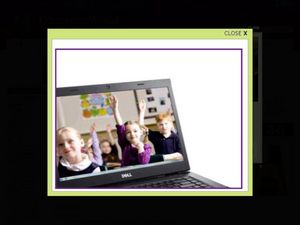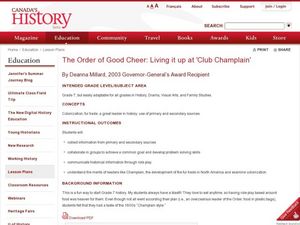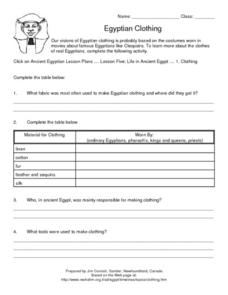Curated OER
Searching the States (or Provinces) Scavenger Hunt
Students examine information on a particular state or province. Groups of students use the internet to locate facts about an assigned state. They research information such as capital, state song, and major crops. students report their...
Curated OER
Body Shields: Peaceful Protesters or Iraqi Pawn?
Learners research human shields, mostly European peace activists who stand against war. They guard civilian sites to prevent attack on schools, hospitals, etc. Student research is to include articles by those who support the war as well...
Curated OER
Rebellions
Tenth graders explore the causes and effects of the rebellions of Upper and Lower Canada and whether rebellion is an effective means of political change. They research and analyze the impact of the 1837-38 rebellions using primary and...
Curated OER
Some Like It Cold
Sixth graders study Canada's northern territories and four settlements above the Arctic Circle. For this northern Canada lesson, 6th graders maps and timelines to locate physical, political, and economic features of northern Canada....
Curated OER
An Introduction To NGO's Gender Equality Program
Eleventh graders are introduced to the hardships women are facing to the projects of a variety of organizations. They assess Canada's participation in world affairs with reference to human rights and modern conflicts. Pupils compare...
Curated OER
Canadian Citizenship and National Identity
Learners explore the dynamics of Canadian citizenship. They plan and produce a school wide celebration of citizenship.
Curated OER
Early Explorers Web Quest
Learners use the Canadian atlas online to research early explorers and settlers in Canada. They also complete a Web Quest to gather information from maps. They make generalizations about the early settlement patterns as well.
Curated OER
Memorable Maps
Students draw an assigned map from memory about the United States or any other region they are studying. In this maps lesson plan, students draw a map from their memory at the beginning of the year, and do the same assignment at the end...
Curated OER
Where in the World Is…
Learners identify countries, oceans, states, and more on a globe and on a flat map. In this geography lesson plan, students also locate places around their school.
Curated OER
Governance
Fifth graders discuss Potlatch and how the First Nation's government was handled where births, deaths, and marriages were recorded. In this government lesson plan, 5th graders watch a video, write in journals, and paint portraits.
Curated OER
Current Issues/Lesson Plan 2 : What I Think Should Happen
Learners explain the roles and responsibilities of various individuals and government bodies, as well as to recognize the features of the dynamic interplay between them. They explain the process of how of a bill is signed into law.
Curated OER
Raising Voices: World War II in a Song
Twelfth graders discover the different ways Canada and Quebec participated in World War II. They then analyze the repercussions of the war on Quebec. Students complete three knowledge outcomes: Knowledge of facts, ( Canada's...
Curated OER
Turning Points: Crises in French-English Relations
Young scholars investigate major crises and turning points in Qu??bec-Canada relations, explain viewpoints and arguments used by key political figures, analyze primary documents, define viewpoints in press conference setting, and write...
Curated OER
The Order of Good Cheer: Living it Up At "Club Champlain"
Seventh graders participate in a role play activity to study the development of the fur trade in North America and leaders like Champlain.
Curated OER
Egyptian Clothing
In this social studies worksheet, students look for the answers to the scenario of how Egyptians created their clothing for the eight problems.
Curated OER
The Arrests Begin
In this social studies worksheet, learners read about the arrests of the Jews in Denmark and relate the events to the historical time period.
Curated OER
Cheiftainship / Leadership
Students examine Bill Reid's sculpture "The Black Canoe".They decide which character in the canoe they are most like. Students analyze how their personalities work towards contributing to the group. They explore the moral theme of...
Curated OER
Comparing the Food Choices and Body Image of 15-Year-Olds Around the World
Students interpret data regarding food choices and the perceived body image of youth in the world. For this personal health lesson, students compare food consumption patterns in Canada with other countries. Students also compare...
Curated OER
The Importance and Future Of Canadian Resources
Ninth graders examine Canadian natural resources. In this geography skills lesson, 9th graders research answers to questions regarding Canada's water, energy, forests, and wildlife. Students use their findings to create posters that...
Curated OER
Red River Spy Mission
Eighth graders analyze causes of the Red River Rebellion. In this Canadian history lesson, 8th graders consider the differing points of view of the groups involved in this rebellion. Students research Louis Riel and Sir John MacDonald.
Curated OER
Confederation Comparison
Students compare and contrast American and Canadian plans for government. In this government instructional activity, students analyze the text and impact of the Articles of Confederation and the Confederation of Canada....
Curated OER
Second World War - Conscription Events
Students explore the iam Lyon Mackenzie King Diaries which describe the involvement of Canada in WWII.
Curated OER
Christopher Columbus: Historical Perspective
Sixth graders study Columbus Day in relation to who discovered Canada. They complete a KWL about Canada and discuss Columbus Day as an American holiday. After viewing a video, they read articles of Christopher Columbus and work in groups...
Curated OER
Who Lives in the Arctic North?
Students study the Arctic North. In this Canada history lesson, small groups of students research and then teach the class about either the plants, animals, humans, or geography in relation to the Arctic North. Students make their own...























